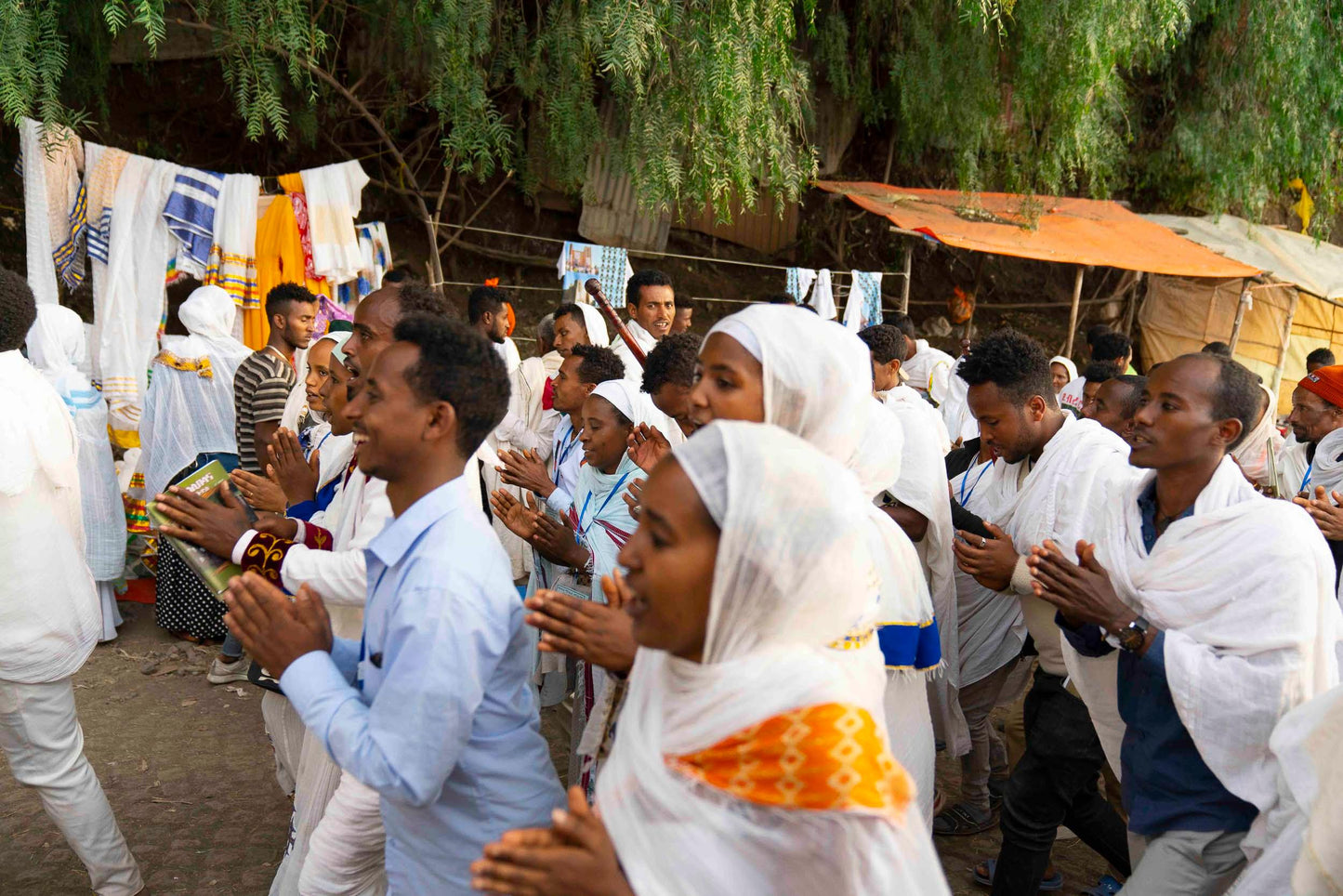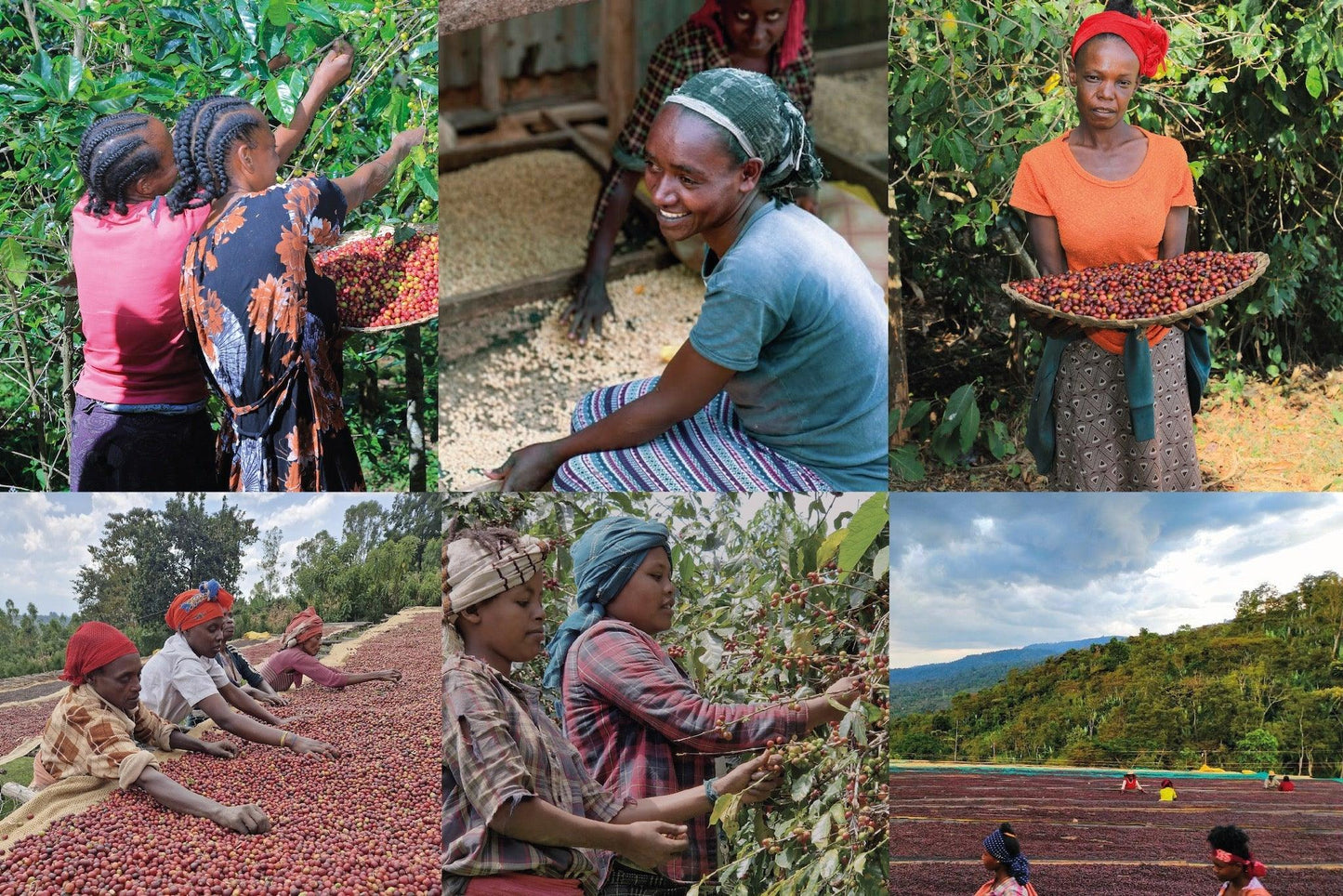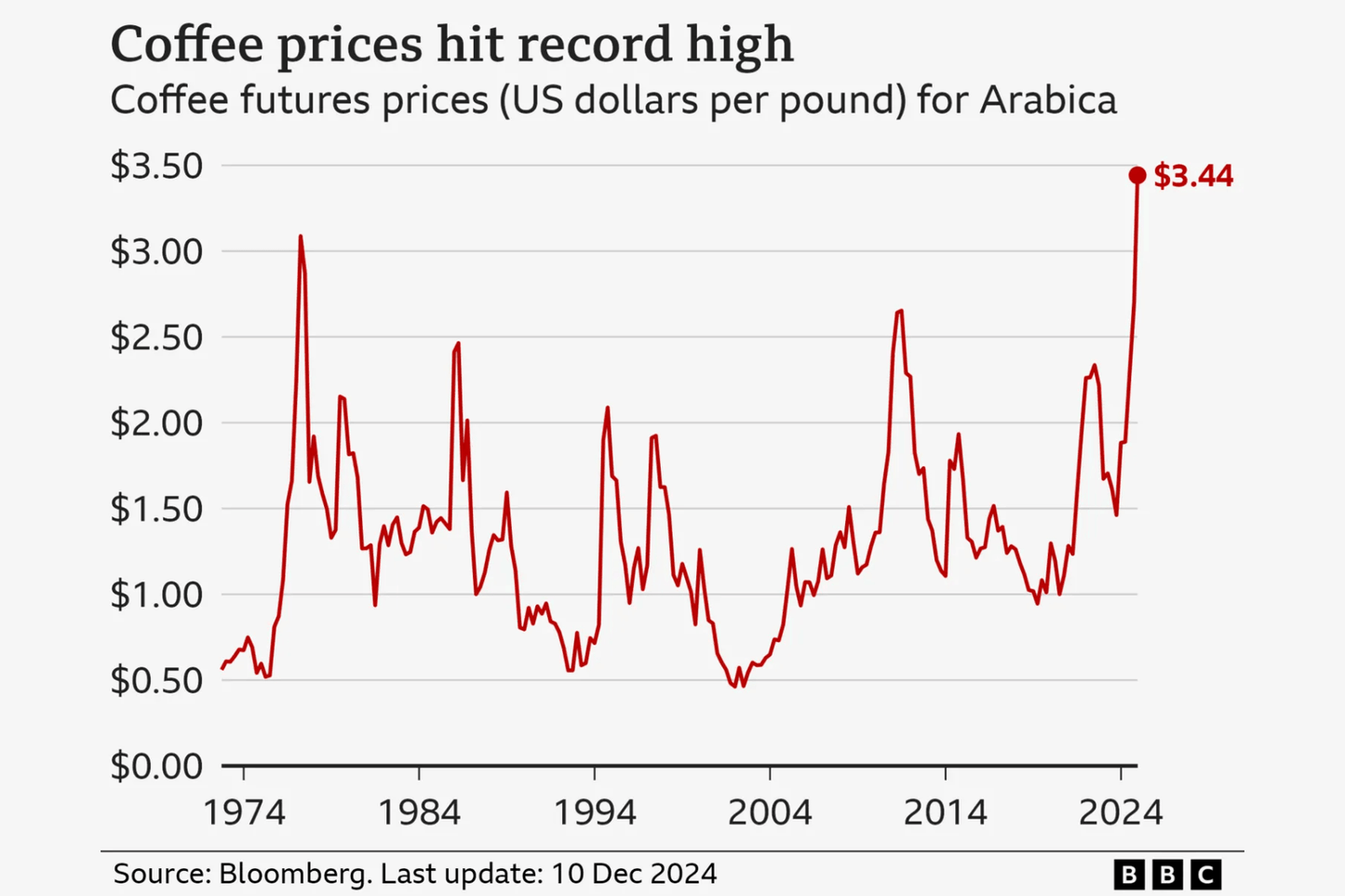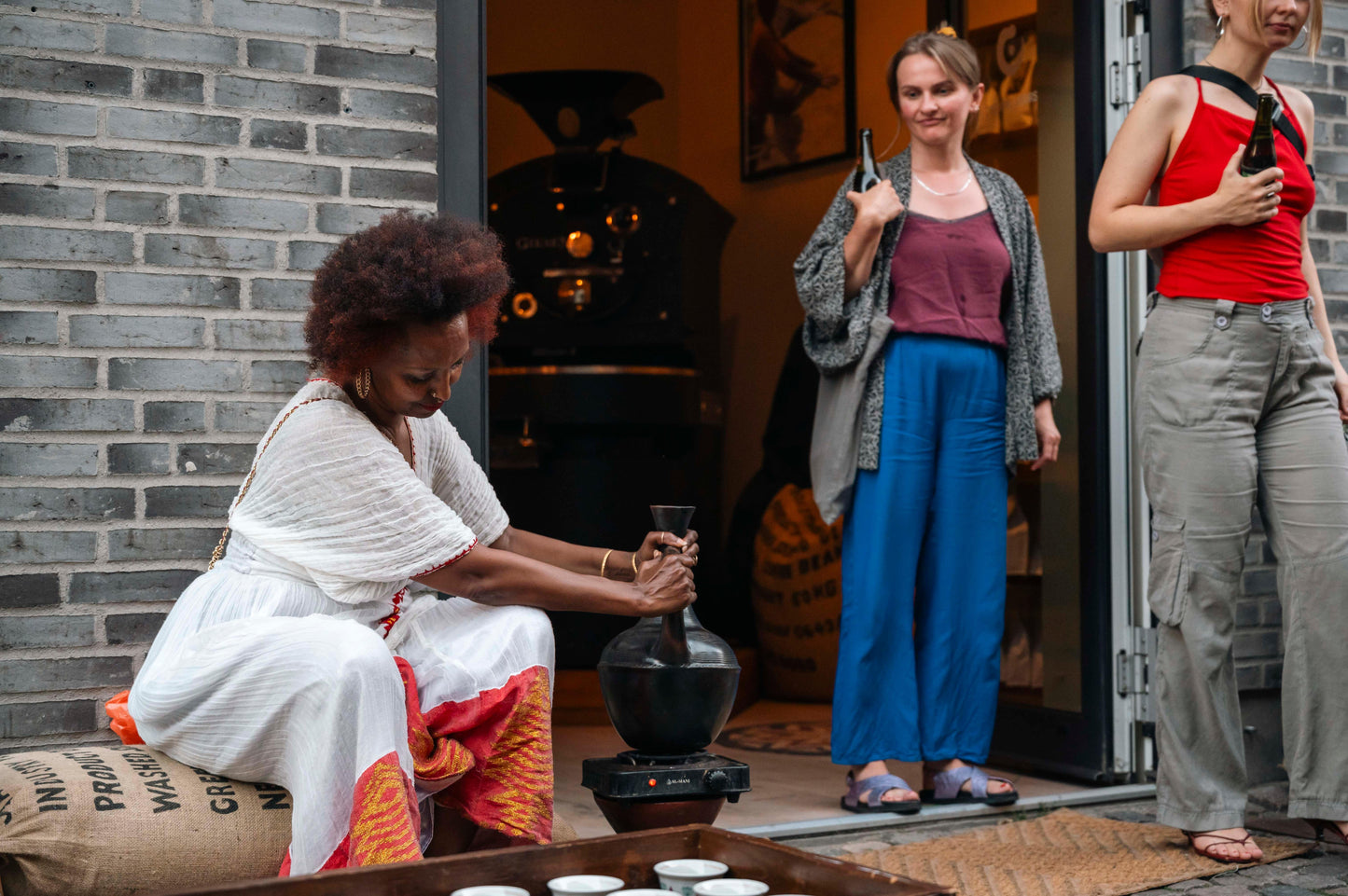
That magic Christmas time in Ethiopia
In Ethiopia, Christmas, or else called Genna, reminds a bit of a big festival with people dressed in their best clothes gathering in the streets to celebrate together. The country's beautiful highlands start getting into the festive mood from January, as the Christmas day for most Ethiopians starts on the 7th of January.
Ethiopia's religious landscape is diverse. All Abrahamic religions such as Christianity, Islam, and Judaism are practiced for centuries. Christianity is practiced there in many forms, such as the Ethiopian Orthodoxy, Pentay, Roman Catholic, etc. However, the main country’s Christmas activities are celebrated at the center of local Ethiopian Orthodox churches.

Christmas spirit
Christmas attributes that are well known in many countries, such as Christmas trees, Santa Claus, or gift-giving, are not traditionally part of the country's Christmas culture. The focus is rather on the community and spiritual aspects of the celebration.


The view of women dressed in white traditional dress, kids wearing the crowns and robes, adults wearing traditional clothes called Shamma, and priests in their red and white robes add to the country’s festive mood. People usually chant, sing, and pray till late at night.



Traditional food
Like everywhere else, food is an important part of Christmas in Ethiopia. One of the most traditional Christmas dishes is a thick spicy stew with chicken and whole boiled eggs. It is also popular to eat a freshly killed lamb for mutton tibs together with Injera - the traditional sour fermented flatbread made of teff. As for sweets, they are quite rare in Ethiopian cuisine. However, traditional Ethiopian honey bread called Defo Dabo and sweet honey wine called Tej are quite popular during various celebrations, including Christmas as well.

It is also hard to imagine Christmas without the famous Ethiopian coffee ceremony since coffee has been an integral part of Ethiopian culture and everyday life for centuries. Ethiopian coffee ceremonies date back to over a thousand years and are widely performed for various occasions, including Christmas celebrations. It is a symbol of the spiritual transformation, and one gets blessed after finishing drinking the last round of the coffee. In this way, Christmas blessings are symbolically made and shared with family and neighbours.
Christmas coffee beans
Ethiopian Christmas Coffee
The Christmas coffee ceremony is more than just a drink. It’s a ritual that brings people together, marking a moment of connection and reverence. Coffee beans are roasted, ground, and brewed in front of guests, filling the air with an aromatic fragrance. As the coffee is served, the ceremony embodies warmth, hospitality, and joy—just as the spirit of Christmas should be. This is a great time to enjoy your favorite Ethiopian beans, whether washed or natural, to embrace the same festive cheer and tradition in your own home.
Like everywhere else, Christmas in Ethiopia is, after all, a time for families to gather together, eat, and enjoy time with each other.








